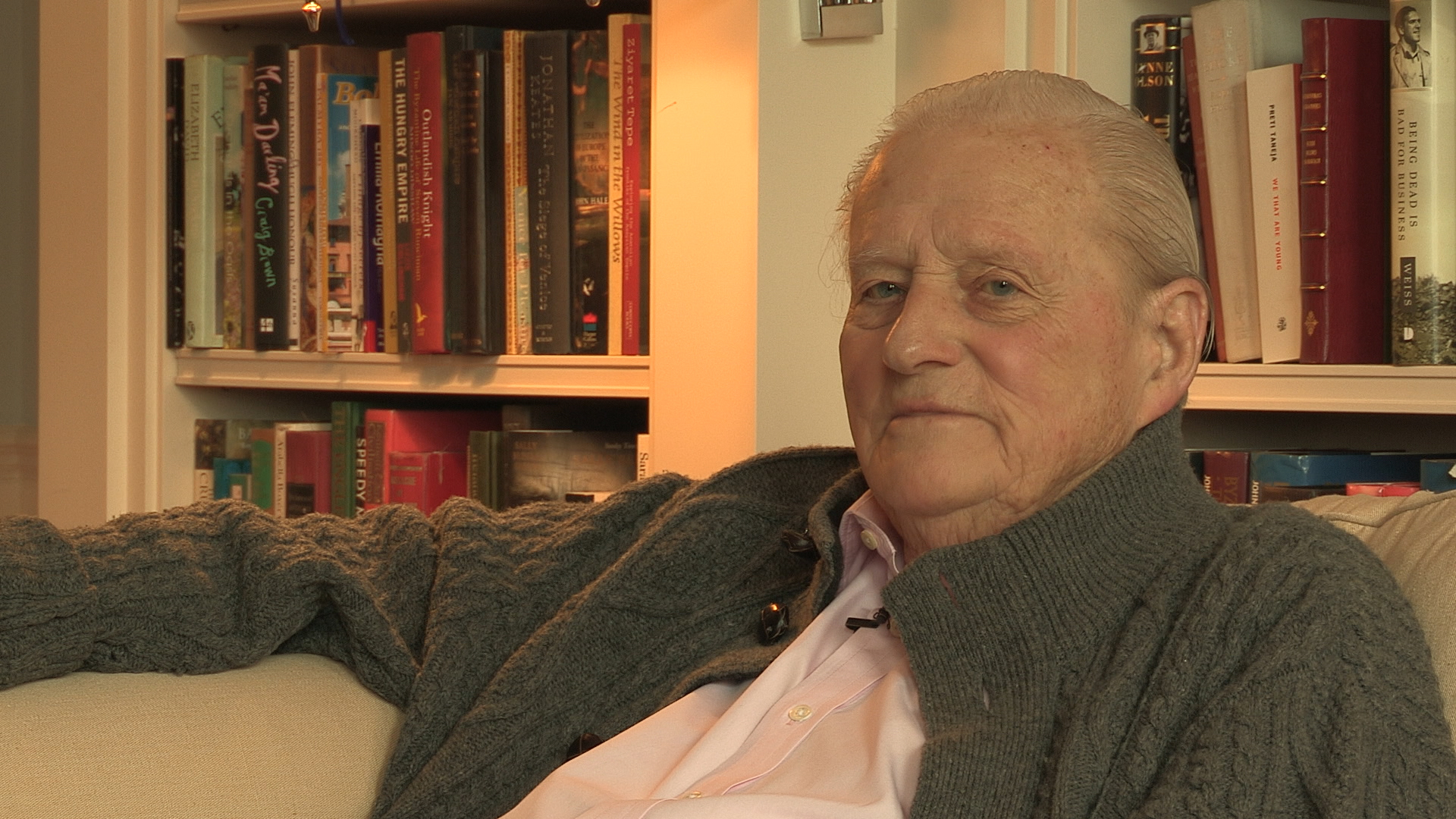NEXT STORY

Killing time in Genoa
RELATED STORIES

NEXT STORY

Killing time in Genoa
RELATED STORIES


|
Views | Duration | |
|---|---|---|---|
| 61. Defying my father's advice | 74 | 03:39 | |
| 62. My gratitude to the Navy | 48 | 02:14 | |
| 63. Meeting my future wife | 61 | 03:43 | |
| 64. Satisfying my wanderlust | 48 | 02:19 | |
| 65. Mummy pulls some strings again | 45 | 02:08 | |
| 66. My mother's plan backfires | 46 | 02:43 | |
| 67. Yugoslavia's unspoilt charm | 52 | 02:51 | |
| 68. House-hunting in Belgrade | 51 | 03:34 | |
| 69. Shakespeare comes to Belgrade | 57 | 04:03 | |
| 70. The vanquishing of the best car in the world | 60 | 05:01 |


Well, the normal work, actually, was very, very interesting. I mean, in my case, I'd say for the first six months it was largely writing up reports on all my travels, which had been extensive, you know, to Macedonia, to Bosnia, to Herzegovina, to Slovenia, Montenegro, all very different, all semi-independent with their own parliaments. And I was sort of calling on people, you know, and then the Church was... the Serbian Church was quite important, we had to keep up with it, go and talk to bishops and things like that, monasteries. I took the Ambassador around some monasteries just before we left. I remember the Foreign Office wrote, it must have been, I suppose, around Christmas 1956, the Foreign Office wrote to the Ambassador saying, 'We've upgraded Belgrade to be a Rolls-Royce post. The Ambassador's going to have a Rolls-Royce.' And Frank Roberts wrote saying, 'Don't do anything of the kind, the Yugoslav roads are absolutely terrible, it won't last well, people have never seen a Rolls-Royce here, they don't expect Rolls-Royces, you know, give me something sort of strong, you know, a glorified Land Rover or something is what we need here, no Rolls-Royces.' But they insisted and the embassy driver was sent to Coventry for three weeks to learn how to drive Rolls-Royces. And the Rolls-Royce arrived with a very smart, young man in a sort of old Etonian tie and a beautifully cut suit; he'd driven it all the way out from London where it was delivered. And it was, indeed, very splendid and after about a week or two, the Ambassador said, 'I must use this thing, I shall go on a trip to Croatia and John Julius, will you come with me as my interpreter?' So, the Ambassador and I got into the back of this car. We hadn't gone, I suppose, more than 20 or 30 miles before there was a sort of ping and what appeared to be a pair of braces shot out from between our two shoulders, which was... it was the central arm-rest which had suddenly come away and its moorings had shot and flattened themselves against the window separating us from the driver. And about an hour or two after that, the hooter started and wouldn't go off. So it wasn't a good beginning, and when we got to Sarajevo, about 10 miles outside the city, the whole of the back of the car went urgh, like that, and collapsed over the back wheel. The Ambassador and I officially entered Sarajevo in a peasant horse and cart, which we'd borrowed. And there were no great garages or magnificent mechanics or anything like that in Sarajevo in those days. It was a very, very backward sort of town. And we were told that the best... we were told that the best mechanic was a man who lived in a shack, a real little shack, you know, but they said, 'Well, he's the best, if he can fix it, anyone can.' So, we took this magnificent Rolls-Royce to him and a day later, we came back, and he said he'd been crying, because he'd always been told that Rolls-Royces were the best cars in the world. They were so far better than anything else. And he took out this little thing that looked like a sort of toasting fork, I remember I had no idea what it was, and said, 'Look at it, it's just broken clean away.' He said, 'I wouldn't put that on my horse and cart, you know, the metal's terrible, it's rotten.' So, the Ambassador wrote a stinker to Rolls-Royce with a photograph, incidentally, of him and me arriving in a horse and cart, and the same man, young man, the old Etonian tie, looking extremely sheepish, came out again to drive it home. It was a very, very humiliating incident all round. Whether it was replaced, I don't know.
John Julius Norwich (1929-2018) was an English popular historian, travel writer and television personality. He was educated at Upper Canada College, Toronto, at Eton, at the University of Strasbourg and on the lower deck of the Royal Navy before taking a degree in French and Russian at New College, Oxford. He then spent twelve years in H.M. Foreign Service, with posts at the Embassies in Belgrade and Beirut and at the Disarmament Conference in Geneva. In 1964 he resigned to become a writer. He is the author of histories of Norman Sicily, the Republic of Venice, the Byzantine Empire and, most recently, 'The Popes: A History'. He also wrote on architecture, music and the history plays of Shakespeare, and presented some thirty historical documentaries on BBC Television.
Title: The vanquishing of the best car in the world
Listeners: Christopher Sykes
Christopher Sykes is an independent documentary producer who has made a number of films about science and scientists for BBC TV, Channel Four, and PBS.
Tags: travel, Foreign Office, ambassador, Rolls-Royce, garage, mechanic, Sarajevo
Duration: 5 minutes, 1 second
Date story recorded: 2017
Date story went live: 03 October 2018